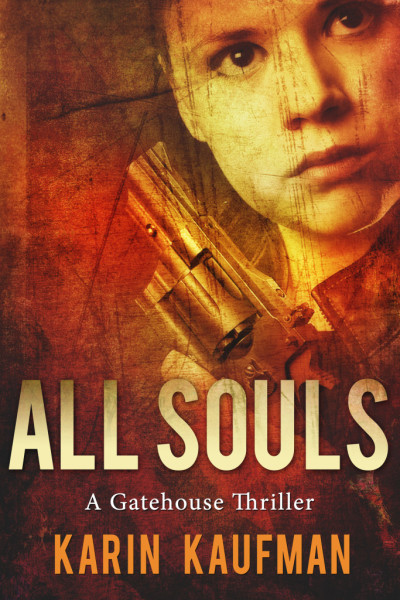 Full disclosure at the outset: Karin Kaufman is a Goodreads friend of mine, and I was one of ten people to claim a free review e-copy of this book. Through much of my reading, I was ready to give it a solid three stars, and the super-strong ending commanded a fourth.
Full disclosure at the outset: Karin Kaufman is a Goodreads friend of mine, and I was one of ten people to claim a free review e-copy of this book. Through much of my reading, I was ready to give it a solid three stars, and the super-strong ending commanded a fourth.
The premise here is that humanity is secretly menaced by a worldwide society of thrill killers, who make the notorious Thugees look like philanthropists, and who are recruited from all walks of normal life, into which they blend anonymously. (Their Gatehouse adversaries call them “Sacks,” short for “Sacks of sh*t”.) By Gatehouse estimates, the society has well over a million members, and has been around for at least 100 years. Organized in hierarchical ranks (members of each rank supposedly don’t cooperate very closely, and hate the other ranks –but they take orders from the higher ranks, and want to advance into them), it has a culture of strange behaviors, like the members taking bizarre secret names and tattooing them on their bodies.
Yet it has apparently no belief system or ideology except conscious embrace of evil and chaotic destruction for its own sake; Sacks apparently have no agenda beyond picking off as many individual innocents as they can without being exposed. The U.S. government –and possibly other governments, but our setting is the U.S.– knows about them and preserves their secrecy. But it combats them with an unofficial arm, the Gatehouse organization, which commands a small army of “hunters” who periodically assassinate individual identified Sacks (as opposed to, say, dealing with them through law enforcement and the court system) at the direction of contacts called “porters.”
Our action-heroine protagonist here is Gatehouse assassin Jane Piper, who’s very competent at what she does, and very motivated –her only sister was butchered by a Sack. She’s as lethal a woman as you’ll ever meet in fiction –but at the same time,one of the most compassionate (the two qualities aren’t incompatible), a decent person who’s kept her humanity and moral compass in a blast furnace of trial. I never had any trouble liking her, nor any doubt of her butt-kicking capabilities.
Early on, Jane reflects that if she stood up and shouted all of the above information in public, nobody would believe her anyway. Apparently, she thinks that the general populace might find this premise far-fetched. Readers might have the same difficulty. The idea is definitely original, but it’s rather hard to suspend disbelief here. While many people do embrace very evil agendas, including the killing of the innocent, hardly any do so while openly and consciously telling themselves that they’re doing so. The vast majority of them have to have some ideological belief system that justifies the evil by telling them that in reality it’s “good,” or for a greater good. I may be naive, but I don’t think Sack recruitment on the basis of “embrace homicidal evil just because it’s fun” would gain as many adherents as they have here. And while I see how Sacks have an interest in keeping their activities secret, I don’t buy the explanation that the government tacitly agrees to cooperate in letting them do so, lest they unleash an even greater blood bath if they’re forced into the open. Credibility is also strained by some individual characters’ motivations. Granted, action-heroine fiction writers often do stretch strict credibility a bit in their premises, and sometimes the tone is sufficiently tongue-in-cheek that the reader doesn’t take such lapses very seriously. Here, though, the tone is pretty serious.
It’s all the more a credit to Kaufman’s ability as a writer, and the strength of this book, that she took that kind of premise and made a four-star book out of it. Her command of language is impeccable –professional, literate, with the kind of painstaking craftsmanship that makes the flow of words seem easy. A Colorado native, she sets her tale in her home state, and the neighboring parts of New Mexico and Wyoming; she’s obviously at home on the ground, with real locations and a sense of place. The plotting is very taut in terms of time, compressed into just seven days –Oct. 27-Nov. 2, All Souls Day. Jane’s a first-person narrator for all but the first chapter, and hers is the perfect voice for the tale. She and the other major characters are all well-drawn. “Gripping” doesn’t begin to describe this book; it grabs you and pulls you along from the starting gate, and I’d have read it in one sitting if I could have.
That’s not to say it’s all action; but the waiting intervals in between are as tense as harp strings. When action comes, it comes quick, realistic, and bloody, with a high body count by the time you get to the last page; Kaufman knows her guns, and she writes action scenes clearly and credibly. Jane’s colleagues tend to be as combat-skilled as she is; and some of their adversaries are extremely deadly and crafty as well. (Generally speaking, in real life I have a problem with governments violating their own laws by sponsoring programs for extrajudicial killing. But I don’t hold operatives like Jane and Nathan responsible for acting in the situational context they’re in. They don’t make the policy; all they can do is protect the innocent and take care to kill only the guilty.) And Kaufman’s plot is a roller-coaster of surprises.
Ultimately, though, this is more than a novel of slam-bang action. It becomes a serious exploration of the possibilities of moral conversion, from great evil to willing embrace of good; of guilt and atonement; of the limits of forgiveness –in short, the kinds of serious moral questions that occupy the great literature of the Western tradition; underneath the smell of gun smoke and blood, we’re in the same realm here that Hawthorne and Dostoevsky, Undset and Graham Greene have visited before. Since this is a series opener, it’ll be interesting to see where Karin takes this theme in future books. And I’ll find out; because I definitely want to follow the series!
Note: there’s not only no sex here, but no romantic sub-plot. Gatehouse doesn’t encourage its operatives to marry, and doesn’t allow them to stay in the organization if they conceive a child. (If Jane ever decides that she wants a man in her life, I think that she deserves a good one, and that she’d be a great wife; but for now, she’s content to be alone, and doesn’t obsess about men and sex.) There is a fair amount of bad language, including some use of the f-word.
Author: Karin T. Kaufman
Publisher: Amazon Digital Services, available through Amazon, only for Kindle or as an audio book at this time.
A version of this review previously appeared on Goodreads.
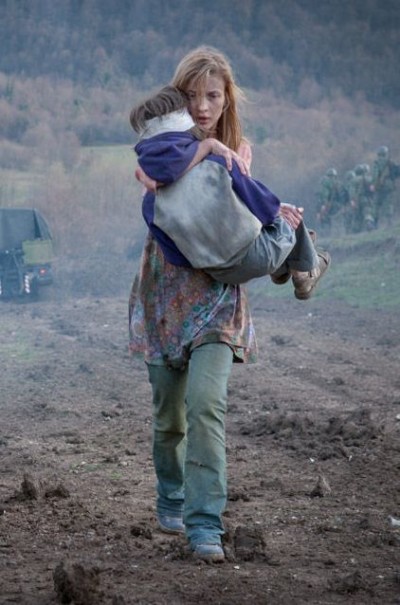 Firstly, a quick note on the title here, which is a little odd. The subtitles call it August ’08, which would make more sense, since it’s based on the spat that month between Russia and Georgia over the territory of South Ossetia, which had seceded from Georgia with Russian backing. Fortunately, you don’t need to know much about the murky geopolitical climate, though this is firmly entrenched on the side of the Russian “peacekeepers,” so probably should be be relied upon for accuracy [I note it was banned in the Ukraine]. The heroine is Kseniya (Ivanova), a single mom who packs her son Artyom (Fadeev) off to be with dad, so she can go on a trip with her new boyfriend. Unfortunately, father is a soldier stationed near the border; when things kick off down there, communications with the outside world are all but cut. Kseniya embarks on a perilous mission through the war-torn landscape to retrieve Artyom, with the aid of recon commander Lyoha (Matveev). Artyom, meanwhile, retreats into the fantasy world he has constructed to deal with the trauma, in which he is the hero, CosmoBoy, fighting with the aid of a giant robot against the evil Darklord.
Firstly, a quick note on the title here, which is a little odd. The subtitles call it August ’08, which would make more sense, since it’s based on the spat that month between Russia and Georgia over the territory of South Ossetia, which had seceded from Georgia with Russian backing. Fortunately, you don’t need to know much about the murky geopolitical climate, though this is firmly entrenched on the side of the Russian “peacekeepers,” so probably should be be relied upon for accuracy [I note it was banned in the Ukraine]. The heroine is Kseniya (Ivanova), a single mom who packs her son Artyom (Fadeev) off to be with dad, so she can go on a trip with her new boyfriend. Unfortunately, father is a soldier stationed near the border; when things kick off down there, communications with the outside world are all but cut. Kseniya embarks on a perilous mission through the war-torn landscape to retrieve Artyom, with the aid of recon commander Lyoha (Matveev). Artyom, meanwhile, retreats into the fantasy world he has constructed to deal with the trauma, in which he is the hero, CosmoBoy, fighting with the aid of a giant robot against the evil Darklord.






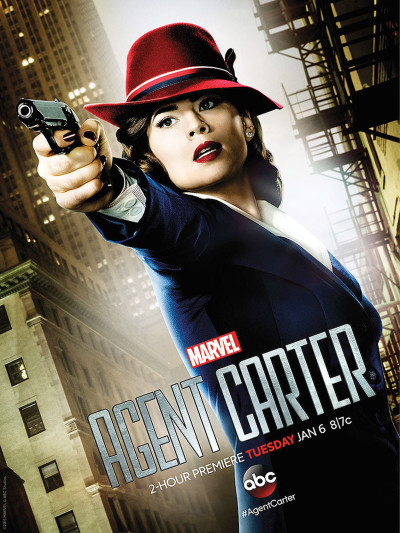
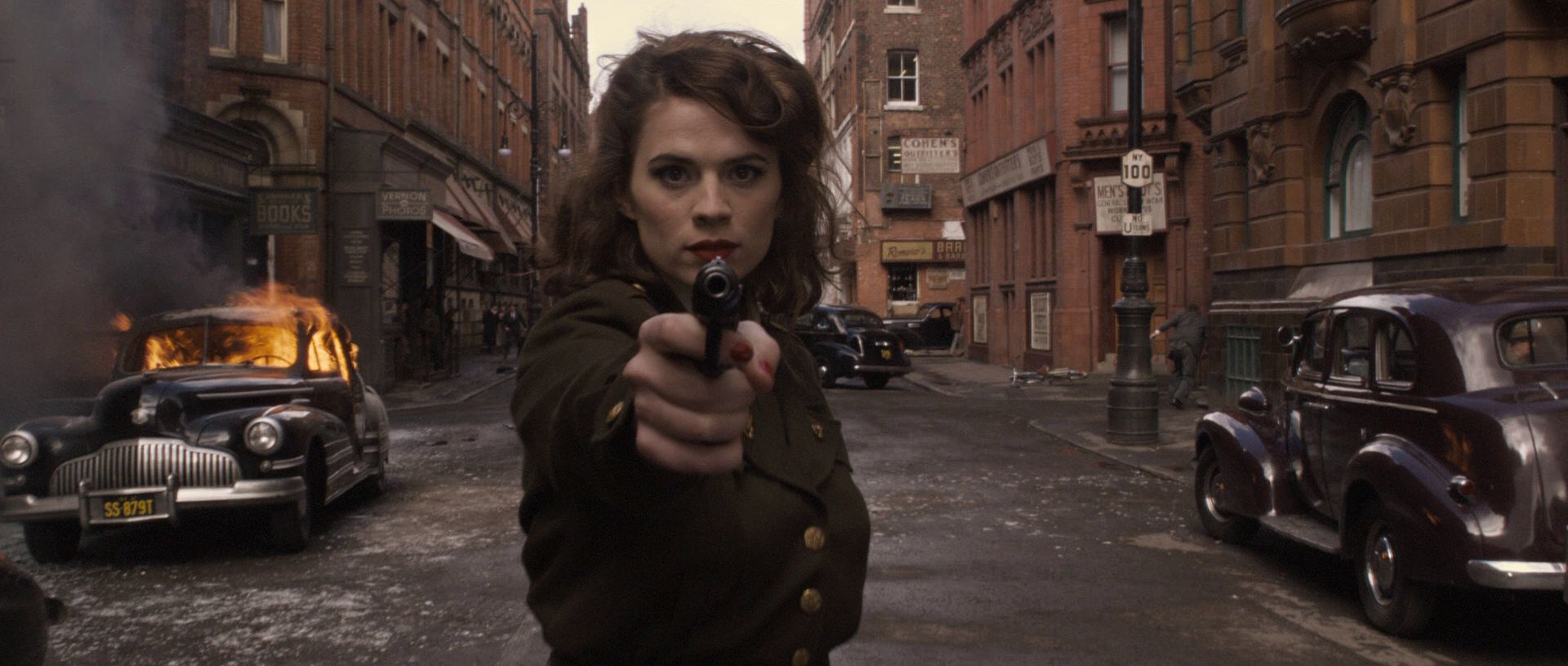











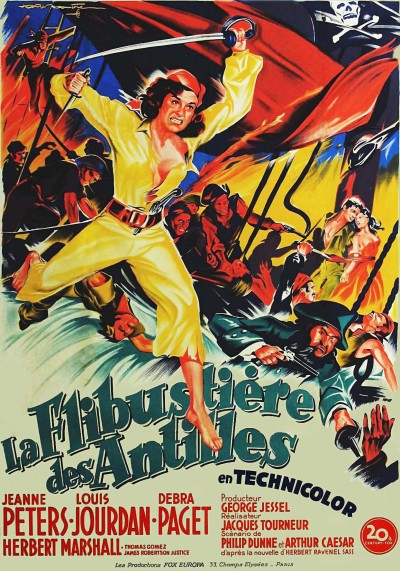















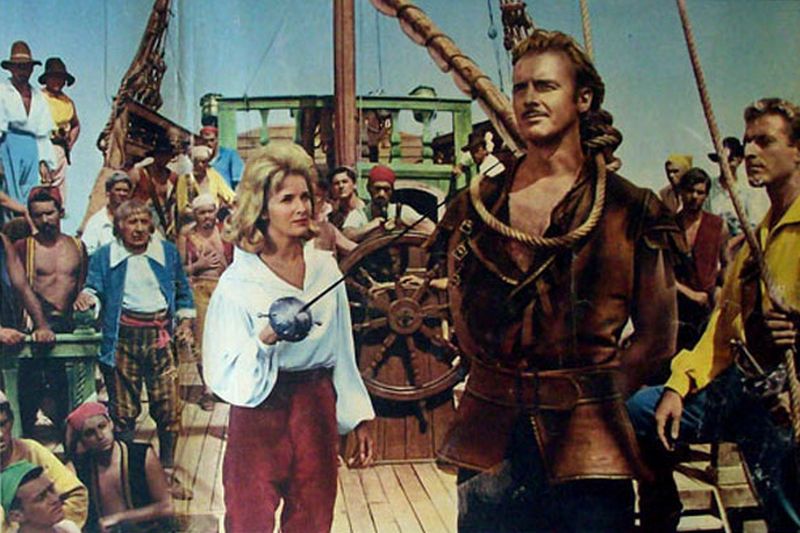
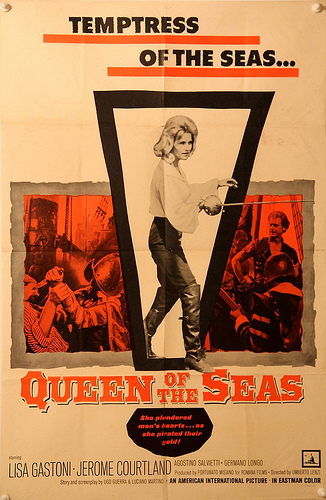 Despite its age – this was made in 1961 – it has stood the test of time fairly well, except for a romantic ending which is both predictable and unfortunate. This turns the heroine into exactly the subservient woman she spent the first 80 minutes
Despite its age – this was made in 1961 – it has stood the test of time fairly well, except for a romantic ending which is both predictable and unfortunate. This turns the heroine into exactly the subservient woman she spent the first 80 minutes 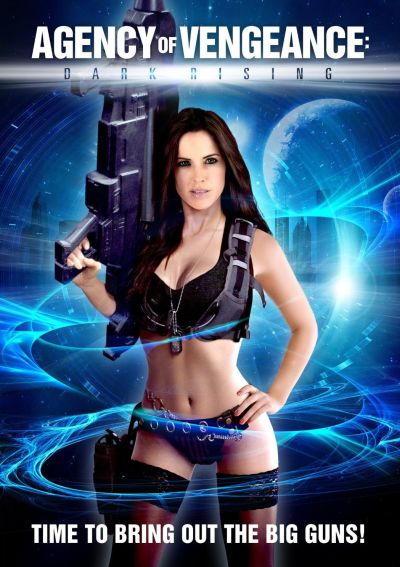 This makes a great deal more sense when you realize it’s actually a sequel, not only to Cymek’s earlier Dark Rising, but also the TV series that followed. The US/Netflix title and blurb cunningly manage to avoid mentioning this, which certainly explains the sense that you have walked into the middle of a story. For instance, none of the characters are apparently fazed by the fact that interdimensional portals have opened, allowing all manner of icky creatures to enter this Earth’s realm from a “Dark Earth”. It’s up to the Rising Dark Agency, a Government department [apparently staffed by about six people] to keep the resulting mayhem in check. Chief among its operatives are Jason Parks (Cannon, a dead-ringer for Dolph Lundgren) and Summer Vale (Kingsley, also the director’s wife), whose combination of human and demon DNA you have probably noticed on the poster. And are perhaps still staring at.
This makes a great deal more sense when you realize it’s actually a sequel, not only to Cymek’s earlier Dark Rising, but also the TV series that followed. The US/Netflix title and blurb cunningly manage to avoid mentioning this, which certainly explains the sense that you have walked into the middle of a story. For instance, none of the characters are apparently fazed by the fact that interdimensional portals have opened, allowing all manner of icky creatures to enter this Earth’s realm from a “Dark Earth”. It’s up to the Rising Dark Agency, a Government department [apparently staffed by about six people] to keep the resulting mayhem in check. Chief among its operatives are Jason Parks (Cannon, a dead-ringer for Dolph Lundgren) and Summer Vale (Kingsley, also the director’s wife), whose combination of human and demon DNA you have probably noticed on the poster. And are perhaps still staring at.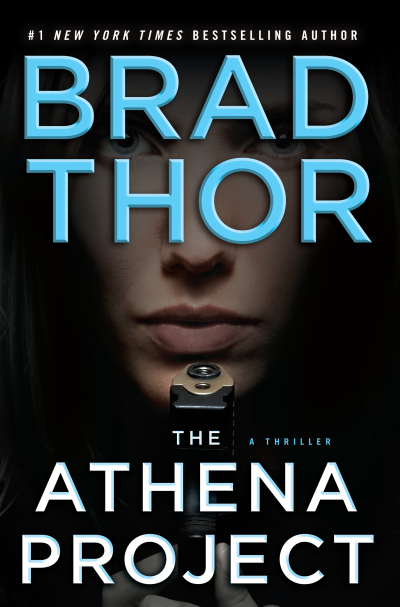 I first became aware of this novel through an article back in February about MMA champion Ronda Rousey and
I first became aware of this novel through an article back in February about MMA champion Ronda Rousey and 
 Make no mistake. By few objective standards could this be described as a “good” film. It is, however, one I found entertaining as all get-out, in a “WTF were they thinking?” kinda way. The main story has Hawaiian cop Jo Alwood (Ford) hunting sleazebag psycho mercenary Robert Kell (Broome), He killed Jo’s sister, among a slew of other women, just after she had accepted a position as bodyguard to bisexual S/M pop star Delilah (Mark), who is his final target. If this sounds a bit familiar, it’s a remake of 1992’s Blackbelt, by the same director, which starred Don ‘The Dragon’ Wilson as the cop. Ford isn’t as good as martial arts, but makes up for this shortcoming by the frequency with which she takes her top off. Heck, she even combines the two, and does martial arts clad only in a thong, which reminded me of another Roger Corman Philippino production,
Make no mistake. By few objective standards could this be described as a “good” film. It is, however, one I found entertaining as all get-out, in a “WTF were they thinking?” kinda way. The main story has Hawaiian cop Jo Alwood (Ford) hunting sleazebag psycho mercenary Robert Kell (Broome), He killed Jo’s sister, among a slew of other women, just after she had accepted a position as bodyguard to bisexual S/M pop star Delilah (Mark), who is his final target. If this sounds a bit familiar, it’s a remake of 1992’s Blackbelt, by the same director, which starred Don ‘The Dragon’ Wilson as the cop. Ford isn’t as good as martial arts, but makes up for this shortcoming by the frequency with which she takes her top off. Heck, she even combines the two, and does martial arts clad only in a thong, which reminded me of another Roger Corman Philippino production,